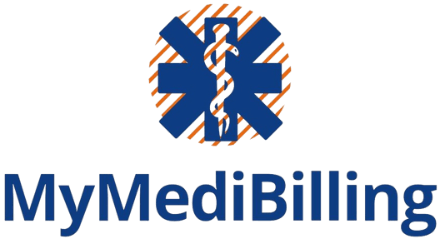Introduction
The medical billing process is a complex system that involves various stakeholders, including healthcare providers, insurance companies, and patients. At its core, medical billing is the process of submitting and following up on claims with health insurance companies to receive payment for services rendered. This process begins when a patient receives medical care, after which the healthcare provider generates a bill that outlines the services provided.
The bill is then submitted to the patient’s insurance company, which reviews the claim and determines the amount it will cover based on the patient’s policy. Understanding this process is crucial for patients who wish to negotiate better rates with medical billers. Familiarity with common billing codes, such as Current Procedural Terminology (CPT) codes, can empower patients to question charges that seem excessive or unclear.
Additionally, knowing how insurance coverage works—such as deductibles, copayments, and out-of-pocket maximums—can help patients identify areas where they might save money. By grasping the intricacies of medical billing, patients can approach negotiations with confidence and clarity.
Key Takeaways
- Understanding the medical billing process is crucial for negotiating better rates with medical billers.
- Effective communication with medical billers can help in negotiating lower medical bills.
- Utilizing insurance coverage can be a strategy to lower medical costs and negotiate better rates.
- Advocating for fair and reasonable billing practices is important when negotiating with medical billers.
- Seeking assistance from patient advocacy organizations can provide support in negotiating payment plans and discounts with medical billers.
Tips for Effective Communication with Medical Billers
Preparation is Key
When speaking with a medical biller, it is essential to remain calm and polite, as a respectful tone can foster a more productive dialogue. Clearly articulating your concerns and asking specific questions can help ensure that you receive accurate information regarding your bill.
Active Listening and Clarification
Pay close attention to the responses provided by the medical biller and take notes if necessary. This not only demonstrates your engagement but also allows you to reference specific points in future discussions. If you encounter jargon or terms that are unfamiliar, do not hesitate to ask for clarification.
Building a Positive Relationship
Building rapport with the biller can also be beneficial; expressing appreciation for their assistance can create a more collaborative atmosphere, making it easier to negotiate favorable terms. By following these steps, individuals can effectively communicate with medical billers and navigate the complex process of managing their medical bills.
Effective Communication Strategies
Strategies for Negotiating Lower Medical Bills
Negotiating lower medical bills requires a strategic approach that combines research and assertiveness. One effective strategy is to conduct thorough research on the average costs of specific medical procedures in your area. Websites such as Healthcare Bluebook or Fair Health can provide valuable insights into what others are paying for similar services.
Armed with this information, you can present a compelling case to the medical biller, highlighting discrepancies between your bill and industry standards. Another useful tactic is to inquire about any available discounts or financial assistance programs. Many healthcare providers have policies in place to accommodate patients facing financial hardship.
By expressing your willingness to pay promptly or in cash, you may be able to negotiate a lower rate. Additionally, consider asking for an itemized bill if you have not received one already; this can help you identify any charges that may be erroneous or inflated, providing further leverage in your negotiations.
Utilizing Insurance Coverage to Lower Medical Costs
| Insurance Coverage | Medical Costs |
|---|---|
| Health Insurance | Lowered by covering medical expenses |
| Co-payments | Reduced by insurance coverage |
| Out-of-pocket expenses | Decreased with insurance coverage |
Insurance coverage can significantly impact the amount you owe for medical services, making it essential to understand how to leverage it effectively. Start by reviewing your insurance policy to familiarize yourself with the specifics of your coverage, including in-network versus out-of-network providers, copayment amounts, and any exclusions that may apply. If you have received care from an out-of-network provider, inquire whether your insurance company offers any out-of-network benefits that could help offset costs.
When negotiating with medical billers, it is also beneficial to involve your insurance company in the conversation. If you believe that certain charges should be covered under your policy, contact your insurer for clarification and support. They may be able to advocate on your behalf or provide additional information that strengthens your case when discussing your bill with the provider.
By effectively utilizing your insurance coverage, you can potentially reduce your overall medical expenses.
Advocating for Fair and Reasonable Billing Practices

Advocating for fair and reasonable billing practices is essential not only for individual patients but also for the healthcare system as a whole. Patients should feel empowered to question charges that appear excessive or unjustified. This advocacy can take many forms, from directly addressing billing discrepancies with providers to participating in broader initiatives aimed at promoting transparency in healthcare pricing.
One way to advocate for fair billing practices is by sharing your experiences with others. Engaging in discussions on social media platforms or community forums can raise awareness about common billing issues and encourage collective action. Additionally, consider reaching out to local consumer protection agencies or healthcare advocacy groups that focus on fair billing practices.
By joining forces with others who share similar concerns, you can amplify your voice and contribute to meaningful change in the healthcare landscape.
Negotiating Payment Plans and Discounts
Establishing Manageable Payment Arrangements
When faced with high medical bills, negotiating payment plans and discounts can provide much-needed relief. Many healthcare providers are willing to work with patients to establish manageable payment arrangements that allow them to pay off their bills over time Negotiate without incurring additional financial strain. When discussing payment options, be honest about your financial situation and propose a plan that aligns with your budget.
Exploring Discounts and Financial Assistance
In addition to payment plans, inquire about any available discounts for prompt payment or financial hardship. Some providers offer reduced rates for patients who can pay their bills in full upfront or who demonstrate genuine financial need. It is important to approach these discussions with a clear understanding of what you can afford while remaining open to negotiation.
Proactive Steps to Alleviate Financial Burden
By proactively seeking out these options, you can alleviate some of the financial burdens associated with medical expenses.
Seeking Assistance from Patient Advocacy Organizations
Patient advocacy organizations play a crucial role in helping individuals navigate the complexities of medical billing and healthcare costs. These organizations often provide resources, guidance, and support for patients facing challenges related to their medical bills. They may offer educational materials that explain billing practices, insurance coverage, and negotiation strategies, empowering patients to take control of their healthcare expenses.
In addition to providing information, many patient advocacy organizations offer direct assistance in negotiating bills or resolving disputes with healthcare providers. They may have trained advocates who can step in on your behalf or provide personalized advice tailored to your specific situation. By reaching out to these organizations, patients can access valuable support that enhances their ability to negotiate better rates and achieve fair outcomes in their medical billing experiences.
Conclusion
To negotiate better rates with medical billers, it’s essential to approach the process with preparation and clarity. Begin by thoroughly understanding your medical bills and insurance coverage, which will give you the confidence to request adjustments. Negotiating good rapport with billing staff can make negotiations more amicable and increase the chances of securing discounts. Requesting itemized bills is crucial for spotting any discrepancies or unnecessary charges that can be challenged. Ultimately, politeness and persistence are vital in this process; if initial efforts don’t yield results, don’t hesitate to escalate the discussion to a supervisor for further consideration.

